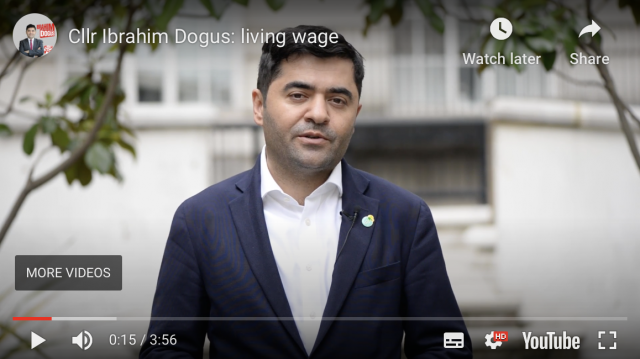When I came to this country as a teenager, the first thing I did was to get to work.
I have always believed that to get on, you have to work hard. But because I had few advantages, the types of work I could do were limited at first. Working in kitchens. Waiting on tables. Washing dishes.
Hard work. But low pay.
Back in the 1990s, there was no national minimum wage. People were working for one or two pounds an hour. Not enough to live on, even if you worked every hour of the day and night.
And believe me, lots of people tried it!
This month we celebrated the 20thanniversary of the National Minimum Wage, introduced, I am proud to say, by a Labour Government.
Back then, the Conservatives said the national minimum wage would be a disaster and cost millions of jobs.
But the Conservatives were completely wrong.
Since then, we have won the argument that work should pay, and no-one should work for poverty wages.
Now we need to take the next step – building on the success of the National Minimum Wage and towards a Living Wage, especially here in London.
What’s the difference?
The London Living Wage recognises that living in London is more expensive than most of the rest of the UK.
The London Living Wage is set at £10.20 an hour, for everyone over 18.
Many enlightened employers in London have signed up to the scheme, including Lloyds TSB, IKEA, and the London Borough of Lambeth, where I am a councillor.
Other organisations I am involved with, for example, Lambeth Life community newspaper, and the think-tank the Centre for Turkey Studies, which also organised the British Kebab Awards, have signed up to the London Living Wage.
I have run small companies since I was 24.
I am keenly aware that not all Small and Medium Enterprises can afford to pay the Living Wage to all their staff right now.
For example, the restaurant trade has always been demanding, with narrow margins, and the hike in business rates and higher food prices post-referendum have made things even more difficult.
But the point of the Living Wage is that it sets a benchmark that business owners can aspire towards.
At my three restaurants (which I have stepped back from running day to day while I fulfil my council duties) we already pay most staff at a considerably higher rate than the Living Wage.
It is my aim to make it possible for all employees to receive the Living Wage in the near future.
I believe all workers should be fairly paid for the job. That’s a fundamental principle of the labour and trade union movement.
But the London Living Wage is about more than social justice.
But is also makes for sound economics. A well-paid workforce is a happy workforce, with disposable income to spend in local shops and on local services.
The wealth is spread around the community, not hoarded in the hands of a few at the top.
The next Labour Government will raise the level of the national minimum wage to the same level as the Living Wage, putting more money into the pockets of hardworking people: people working in hotels, cafes and restaurants, cleaners, drivers, shop workers, and all the people who make London, and the country, tick.
Putting cash into the hands of the many, not the few.
I believe everyone deserves a living wage for the job they do.
But what do you think? Please get in touch and share your concerns, ideas and thoughts with me.





